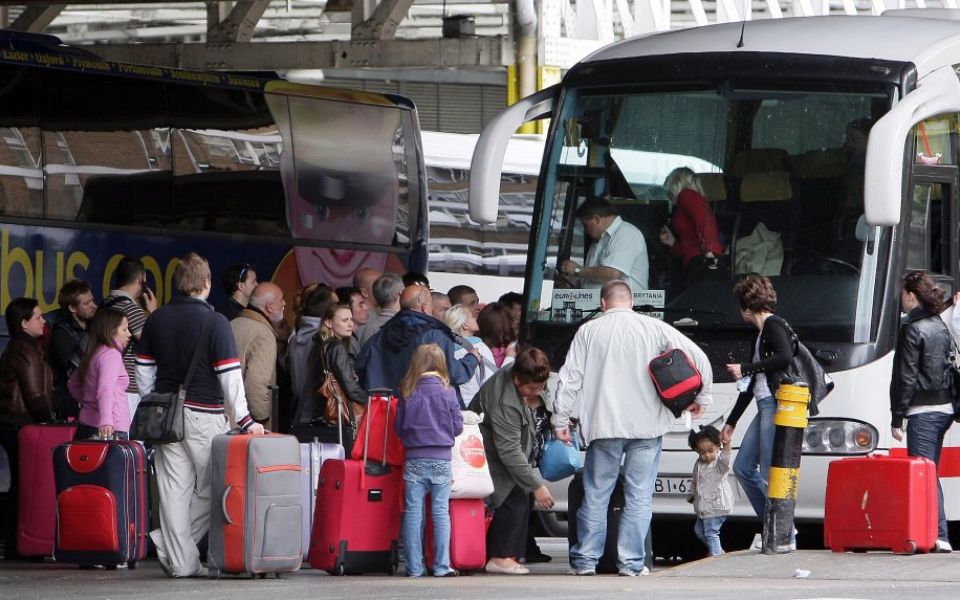Theresa May’s crude policy is the wrong way to manage immigration

The government's announcement of a new immigration policy post-Brexit has at least the merit of providing a clearer sense of direction – assuming Brexit happens and does so in a reasonably orderly way (which are some big “ifs”).
The news also provides an opportunity to think, from first principles, what a sensible immigration policy should look like.
The present structure is an accretion of – usually – legislative responses to panic about “mass” immigration from outside the EU combined with, so far, freedom of movement within the EU.
The government plans to equalise treatment, but the underlying assumption is that numbers need to be cut – especially of “unskilled” workers – defined by a salary threshold.
The underlying economics of immigration is that it invariably raises output, but may or may not raise output per head, depending on the productivity of the migrant.
The government’s own Migration Advisory Committee (MAC) has just acknowledged the contribution to productivity and innovation from an immigrant labour force that is relatively young, flexible, ambitious and mobile. Strikingly, the average EU migrant contributed £2,300 more to the public finances (in 2016/17) than the average Brit.
Those who favour tight immigration controls claim that there is an impact on the wages of the low-skilled. However, various economic studies which I commissioned in government failed to show any significant drag on wages; by and large, the relatively unskilled migrants were doing jobs that the indigenous labour force wouldn’t do.
But there may be particular occupations and places where there is a negative impact. This is true also of the housing market and demand for finite public services. The unsurprising conclusion of the MAC is that, overall, highly paid migrants have less of a negative impact because they nationally pay more in tax.
Let us assume that the main thrust of the new policy is to cut substantially the numbers of low-paid, low-skilled migrants. The two are not necessarily the same: post-research scientists may be disproportionately valuable, but paid relatively little. The construction industry is short of people at almost all skill and salary levels. A long history of under-training and casual work has left the industry short of people, and with an ageing workforce.
The government has aspirations for a big increase in house building, and for major infrastructure investment. Without a continuation of the current EU freedom of movement, the ambitions are little more than fantasy.
In the current labour market, it is not clear where the British workers are who will perform the low-skilled jobs; we are at record levels of employment, and labour participation rates are high.
If labour markets tighten, the scarcity of jobs will push up pay. This is good news for some of the unskilled workforce, but less good news for the NHS and local councils who will have to fill the vacancies for care workers and nurses. It’s also unwelcome news for the consumers of many services, as well as for skilled workers whose pay differential is eroded.
With higher inflationary pressure, interest rates will have to rise, which will have a knock-on effect on highly indebted individuals and companies.
No doubt, in time, a new balance would be found in a shrunken economy, but the costs will be considerable. And as the Federation of Small Businesses points out, the burden of adjustment will fall mainly on smaller companies.
One key uncertainty is what happens to the net immigration target of 100,000. I and my colleagues in government strongly opposed this target, but it was a key Conservative commitment and has remained. One basic criticism is that it combines totally different groups – workers, dependents, refugees and others, like overseas students, who are not here to stay, and who also bring considerable benefits to the country.
The target has rightly attracted ridicule and cynicism, and it has been repeatedly missed. But the mere fact of having a target and missing it has fuelled a good deal of disquiet around migration.
Since Theresa May is wedded to it, however, we can expect to see further restrictions over Tier 2 work visas, which are in theory the easiest to control.
Current experience of non-EU migration control, sadly, suggests a clunking, bureaucratic system largely unrelated to the economic needs of the country, and which will now be extended to the one major group of workers who are not subject to it.
Managing immigration is right and necessary. But an arbitrary target reinforced by a crude salary threshold is entirely the wrong way to go about it.